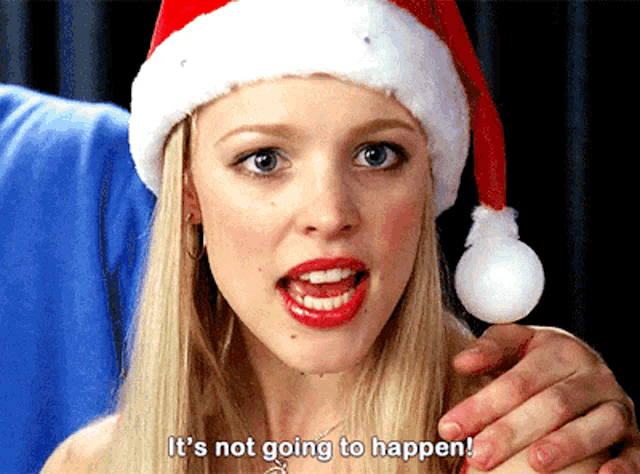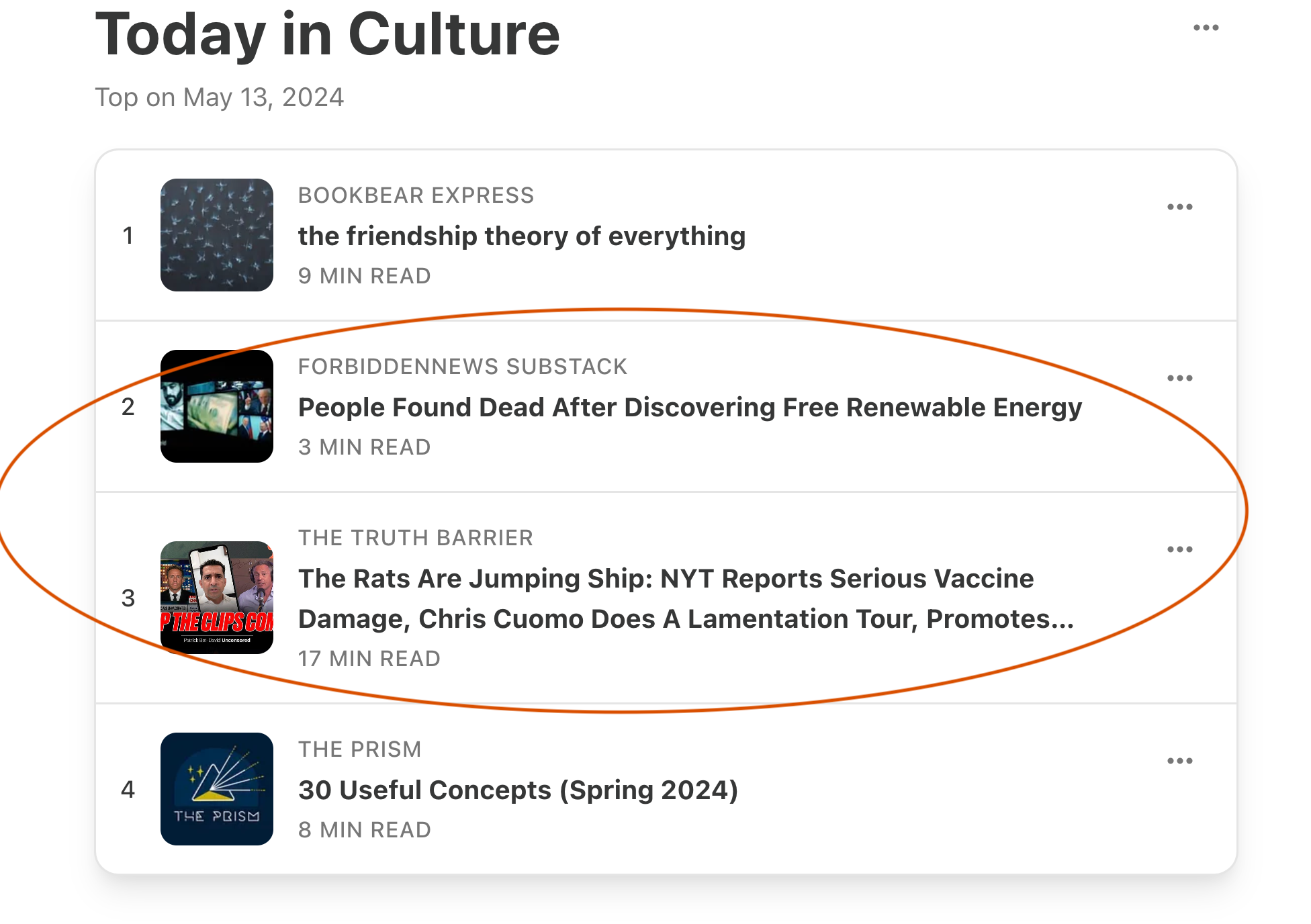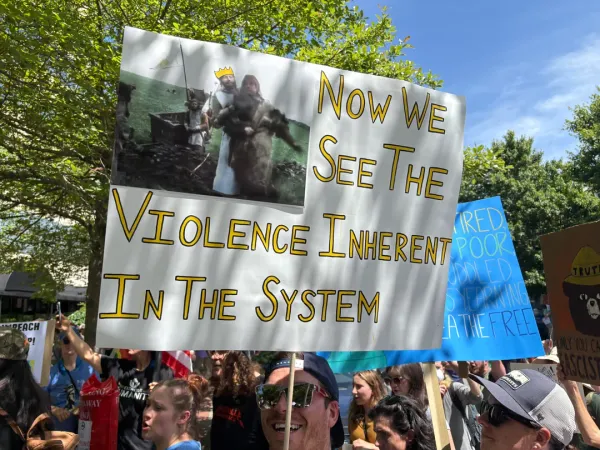In which I try to make 'fetch' happen
I think anyone who has ever used Google Maps to get directions can see the potential pitfalls of letting AI tell you where you go for Sunday dinner or the best local dry cleaners - let alone anything of greater consequence.

It's about to get even harder for small creators
I posted an article on Medium last week complaining about the Substack platform's bait-and-switch on Google search integration. Now I learn that Google itself may render search-engine optimization (SEO) obsolete.
As Platformer's Casey Newton explains, Google plans to offer more AI-generated answers in its search results instead of a list of direct links to websites.
But to everyone who depended even a little bit on web search to have their business discovered, or their blog post read, or their journalism funded, the arrival of AI search bodes ill for the future. Google will now do the Googling for you, and everyone who benefited from humans doing the Googling will very soon need to come up with a Plan B.
I think anyone who has ever used Google Maps to get directions can see the potential pitfalls of letting AI tell you where you go for Sunday dinner or the best local dry cleaners - let alone anything of greater consequence.
But we may be about to see the wide spectrum of information available on the web put through a small, AI-powered funnel that constrains, distills and dumbs-down everything into short summary paragraphs.
A history lesson
Back in the 1980's, large media companies began buying up the local newspapers and TV stations in individual markets. Where in the past, your local newspaper (in a lot of cases, newspapers) were individually owned by people in those communities, they quickly became, basically, franchises of the larger company.
This shift to more corporate-owned media meant that the staff of most of these newspapers and TV and radio stations were more mobile. For example, a reporter would start at a newspaper in a small market, then 'move up' and move on to one in a larger market, then an even larger market, etc. They were often not in one place long to develop relationships and a deep knowledge and connection in those places.
At the same time, the media companies moved to save costs by homogenizing the content of their various outlets - devoting more time and space to syndicated features, national news and other material than on stories generated in and about individual communities.
They also often eliminated competition by buying up multiple competing outlets and merging them or shutting them down.
Obviously, this was bad for the people who worked there - lots of writers, reporters, photographers, cameramen, producers were out of a job.
And it was bad for the communities as well. You end up with a very small number of people in a very far-away place determine what information you have access to.
Amazon-ification?
A similar analogy can be made with the rise of the large, chain booksellers and the impact on independent bookstores. With so much market power, the chains began to determine what books people saw on their shelves, what they read, and eventually what would be published.
Small publishers, new writers and new forms of writing were basically shut out.
Then Amazon arrived and turned the whole market - and then e-commerce as a whole - on its head. Amazon did to the large book retailers like Barnes & Noble what they did to the mom-and-pop shops.
But for writers, it also offered opportunity. Many more writers have been able self-publish and market their own work thanks to Amazon's Kindle-Direct Publishing and other online services.
Best-selling romance novelist Colleen Hoover (Slammed, It Ends with Us) self-published her first book in 2012. As of October 2022, she has sold more than 20 million books and is one of the most successful authors in the United States.
Groundhog day
As more traditional media outlets have shuttered, people who primarily communicate by the written word - journalists, writers, academics, subject-matter experts - turned to personal websites (and, now, to email newsletters) as a way to reach an audience.
The internet has been a way for individual voices to cut out the middleman and make themselves heard. But there were two main problems - how to establish credibility and stand out from the crowd of other blogs and websites, and how to make money.
Back in the '90s, Google was just one of several search engines and most people found new writers by word-of-mouth or by the hosting platform (Blogger, Blogspot, Typepad, Wordpress). SEO was one part of a website marketing strategy, but you didn't live or die by page-rank.
But as the number of websites for everything proliferated, search results and page rank became more important. People primarily found information via search engines. And Google essentially cornered the market on search. SEO became an essential business strategy.
Bloggers and others can make money by selling ads, doing sponsorships or setting up a paywall and selling subscriptions. But first, you have to get eyes on the page.
Now Google plans to turn search on its head.
So what's my Plan B?
I think it will become even more important to stay flexible as a writer and creator.
Don't rely on one publishing platform, marketing strategy, or social media outlet to market yourself and develop an audience. Be active on multiple different sites, but build a following and brand identity based on your own talent, experience and expertise.
I see a lot of new writers asking, "How do I grow on Substack?" or, "How do I get boosted on Medium?"
As I said before, it's not about the platform (despite what those sites would like you to believe.) I didn't find Heather Cox Richardson because of Substack, I found Substack because of Heather Cox Richardson - and the people sharing her posts on Facebook.

I would also point out that Google has a bad track record of launching new products and projects with a lot of fanfare, only to abandon them later. So who really knows where this is going to go.
Spend an hour on Substack Notes or reading Medium's Recommended Stories and you'll want to throw your laptop out the window. So much poorly written clickbait (and some truly frightening conspiracy theories), while many wonderful writers are overlooked.
But wonderful writing - and writing opportunities - are on both platforms and on others.
I plan to focus on what I know - producing work that informs people and with writing that I am proud of - and publishing where I can. And hoping that if I write it, eventually, the readers will come.
What Else is New?
About our life in Berlin
I write a weekly newsletter, Alte Frau - New Life, about life as an American living in Berlin, Germany. (I know, I've mentioned it a few times.) You can read it online at the link, or check it out by clicking on the 'Life in Berlin' tab in the header navigation above.
Thanks to SociableKit for the great RSS widget that allowed me to syndicate my newsletter feed on my blog!
The Weekly Reader
Links to the great reads I found around the web this week.
Atavist Magazine - The Last Shall be First (h/t: Longreads).
The Noösphere: How Trad Wife Content Amplifies Far-Right Conspiracy Theories
Zeitgeist: The Spy Who Came in from the East
Sarah Kendzior: There's a Sniper on the Roof of the School Where I Studied Authoritarianism



